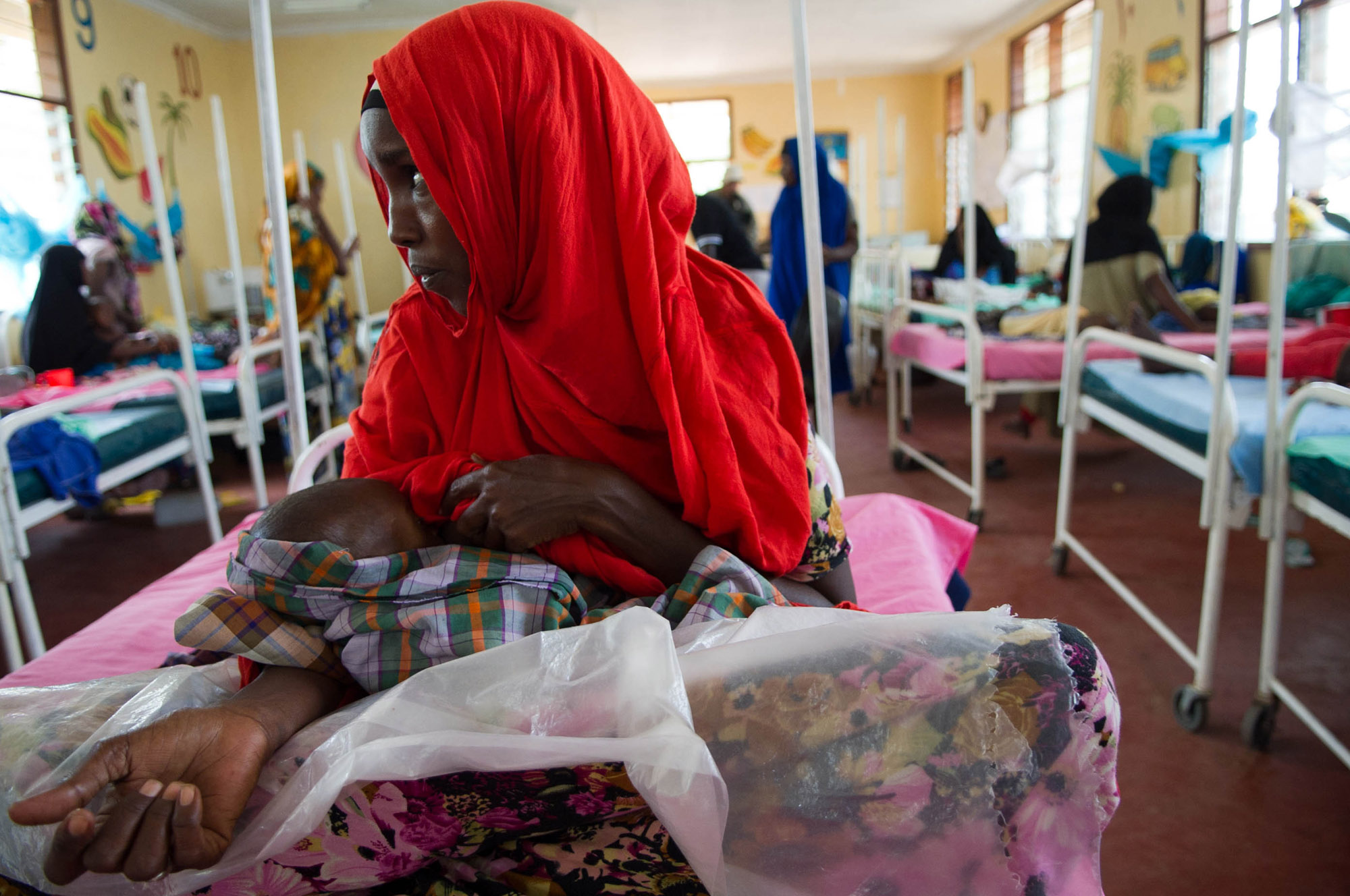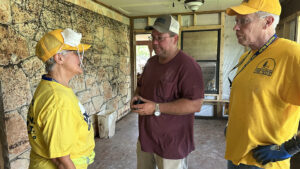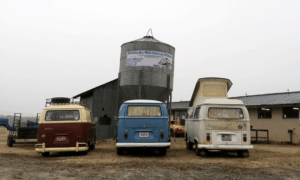
DADAAB, Kenya (BP)–The father-daughter duo stumble into the refugee camp in search of food, water and shelter after an eight-day walk through the desolate, dried-up African bush. Eerily thin, they hope to find relief from the worst famine to hit the Horn of Africa in 60 years.
It took Habiba Nuna and her father twice as long as the thousands of other Somali refugees making the four-day trek from the border of Somalia to Dadaab, Kenya — the 40-year-old woman carried her elderly father to safety.
Tens of thousands of Somalis, mostly women and children, stream into the refugee camp clutching small bags of clothes and other meager possessions. The children are malnourished. Most are listless and too small for their age. A 3-year-old child looks like a 1-year-old. Their mothers, however, smile and are in good spirits — they have survived the journey. Hope runs high for the help that will save their families.
The reality, however, is many relief organizations are struggling financially. The Southern Baptist World Hunger Fund has only enough money to last six more months, and that estimate doesn’t include the current African famine crisis in the mix.
Habiba’s elderly father, Hussein, sits despondently, staring off into space, as his daughter tries to find help within the camp. He is starving and has been for a long time. Another refugee offers a little milk in hopes of giving the 100-year-old emaciated man enough strength to make it another day.
Resilient Somalis have endured two decades of civil war and two consecutive seasons of no rain. Now, their livestock and crops dead, their babies and elderly suffering from malnutrition, and food prices skyrocketing, they have given up any pretense they can survive on their own.
To get here, many walked more than a hundred miles. Almost everyone passed bodies of mothers, children and the elderly — anyone too weakened by hunger and lack of water to escape with their lives.
The United Nations estimates it will take $1.4 billion to save the lives of some 12 million people across the horn of Africa in Ethiopia, Somalia, Kenya and Djibouti. The emergency is expected to persist for at least three to four months, possibly peaking in August and September.
Southern Baptists face a “red alert” crisis in their World Hunger Fund, trying to meet this impending need, as well as others around the world. Jeff Palmer, executive director of Baptist Global Response, says giving to the fund has sharply declined.
“We are now at a ‘red alert’ time for our human needs funding,” Palmer warns. “The overseas hunger relief fund is down to $4.1 million — enough to meet the needs of Southern Baptist international hunger projects for six months. We are approaching a baseline where we are going to have to start denying funds to critical projects.
“Southern Baptists, who care so deeply about people in need, have given very generously in years past,” Palmer adds, noting that 100 percent of every dollar donated is used to help hungry people. He encourages Baptists to give, for the sake of millions whose lives and destinies are threatened by hunger and starvation.
Palmer points out that World Hunger Fund projects help the poorest of the poor, the most neglected and marginalized and some of the most lost people groups in the world — like Habiba, her elderly father and the countless mothers seeking refuge. The drought-affected area of Africa’s Horn is dominated by Islam.
The UN’s office for the Co-ordination of Humanitarian Affairs (OCHA) estimates that the number of people needing humanitarian assistance could increase by as much as 25 percent, growing from 12 million to 15 million people, by the end of the year. The influx is already felt at Dadaab, the world’s largest refugee camp.
The camp was built to house 90,000. However, relief workers estimate there are more than 400,000 crowded in or around the camp made up of three compounds, with an average of 1,300 new arrivals daily. The newcomers often end up sleeping out in the open until they can construct makeshift shelters with whatever material is handy — sticks, cardboard, cloth or metal. Anything helps to defend against the blistering sun and the billowing dust.
In the camp, there are not a lot of young children running and playing. Most lay in their mothers’ arms, like 1-year-old Abderahnan Dubo, who has a tiny needle in his arm, delivering sustenance from an IV. Officials warn that 800,000 children like Abderahnan could die of malnutrition across East Africa this year.
His mother, Habido, considers her family blessed. Her husband and the other three children survived the 30-day walk from Salgla, Somalia. The only child in serious danger is her youngest, but he is receiving medical attention. Her fears surface, though, when she talks about the future.
The family lost all 30 of their cattle to the drought during the past couple of months. Aid officials estimate that up to half a million cattle have been lost in Ethiopia this year because the drought made food and water scarce. In this pastoralist society, animals are the “bank accounts” and livelihood. Losing livestock means it will take many years to recover, particularly when it means rebuilding a milking herd.
This year’s drought has hit hard, especially considering many people still have not recovered from the serious drought of 2009. In the past few years, Southern Baptist world hunger projects have totaled more than $250,000 in the Horn of Africa, helping families re-establish their footing by providing food, start-up livestock, and clean water projects. As this latest crisis gains momentum, Southern Baptist relief workers and national partners are exploring ways to make the greatest impact for the most at-risk.
–30–
Susie Rain lived and worked in East Africa for more than a decade. Donations designated for the Horn of Africa crisis can be made through the International Mission Board at www.imb.org. Resources for promoting the World Hunger Fund can be found at https://worldhungerfund.com.
















